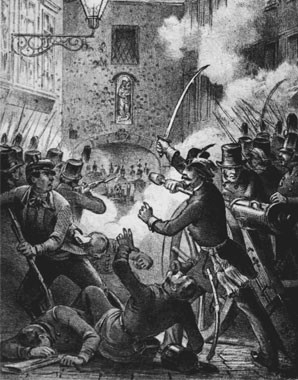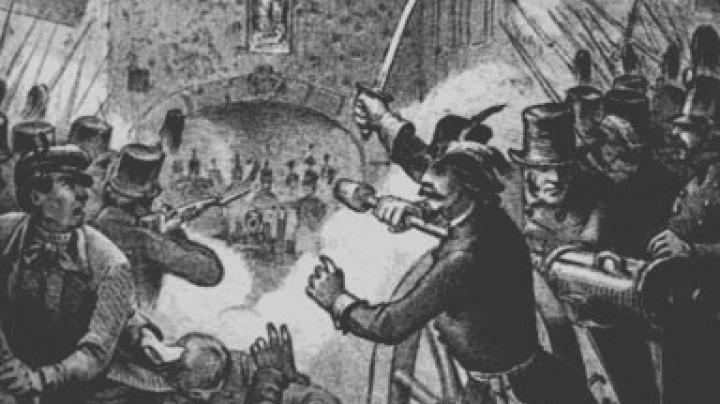Weh dem, der lügt! Censorship in the theatre
Schreyvogel is regarded as the creator of the ‘classical’ Burgtheater. He strove to present authentic performances of classic dramas, an endeavour in which he had to contend with the censor and often the lack of interest from audiences.
Joseph Schreyvogel, manager of the Burgtheater from 1814 to1832, discovered Franz Grillparzer as a playwright and supported him generously. Many of his plays were premiered at the Burgtheater. With works such as König Ottokars Glück und Ende, a paean to Austria, which, however, was not passed for performance by the censor until 1825, after the personal intervention of Franz II (I), he became the ‘house playwright’. In 1838 his comedy Weh dem, der lügt was on the programme of the Burgtheater. The play was eagerly awaited and the premiere was sold out. However, this initial enthusiasm soon waned; the comedy treated not only themes such as lies and truth but also the rebellion of disadvantaged members of society, for example, a kitchen boy, against the traditional social order and aristocratic privilege. After the performance certain aristocratic and dynastic circles provoked a scandal. Grillparzer, who was the director of the Hofkammerarchiv and thus a civil servant, duly turned his back on the stage and published no further works during his lifetime.
Anastasius Grün (the nom de plume of Count Anton Alexander Maria von Auersperg) dared to publish open criticism of the Metternich system: using various pseudonyms he wrote political poetry which had to be smuggled in from abroad and was distributed only in Vienna.
The theatres were the only place apart from churches where large numbers of people were permitted to assemble. They were thus regarded as dangerous by the police and had to be monitored, a function carried out by the universal theatre censorship and theatre commissars. The authorities were not averse to audiences being cheerfully entertained, but were concerned to see ideals conveyed which served the preservation of social order and the Monarchy.
Despite the culture of censorship, the theatres in the suburbs also flourished: Ferdinand Raimund (1790–1836) and Johann Nepomuk Nestroy (1801–1862), who both appeared as actors in their own plays, disguised their social criticism in satirical plays which are still regularly performed on Viennese stages. Nestroy often censored his plays himself by striking out whole passages or individual words and replacing them with more innocuous versions – an indication of his readiness to make concessions towards the theatrical censor.


















